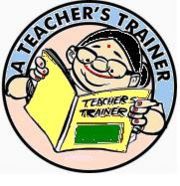THE PROCEDURE OF ACTION RESEARCH
From WikiEducator
Contents
THE PROCEDURE OF ACTION RESEARCH
This section helps you to
|
Key points about action research
- Action research is an approach to improving education by changing it and learning from the consequences of changes.
- Action research is participatory. It is the research through which people work towards the improvement of their own practices.
- Action research develops through the self-reflective spiral which includes cycles of planning, acting(implementing,observing, reflecting, replanning, reacting, reobserving and so on. One good way to begin an action research project is to collect some initial data in an area of general interest , then to reflect , and then to make a plan for the changed action. Another way to begin is to make an exploratory change, collect data of what happens, reflect and then build more refined plans for action. In both cases, issues and understandings, on the one hand, and the practices themselves on the other, develop and evolve through the action research process. However, it would make better sense if we start with issues that affect us in carrying out our professional responsibilities.
- Action research is collaborative. It involves all those responsible for an action, widening the collaborating group from those directly involved to as many as possible of those affected by the practices concerned.
- AR establishes self-critical communities of people participating and collaborating in all phases of the research process: planning, action, observation and reflection. It aims to build communities of people committed to enlightening themselves about the interrelationship of circumstance, action and consequences of the action in their situation .
- Action research is a systematic learning process in which people act deliberately. It is a process of using critical intelligence to reflect over one's own action, and developing it so that it becomes a crucial and a committed action.
- Action Research involves people in theorizing about their practices. That is coming to understand the relationships between circumstances, actions and consequences in their own lives. These theories may be rationales for practices.
- Action Research requires that people put their practices, ideas and assumptions to test by gathering compelling evidence which could convince them that their practices/ ideas/ assumptions were wrong show ways of improving them.
- Action Research is open ended. It involves not only keeping records which describe what is happening as accurately as possible, but also collecting and analyzing our own judgments, reactions, and impressions about what is going on.
- Action Research involves keeping a personal record in which we record our progress and our reflections about two parallel sets of learning (learning about the practices and learning about the processes)
- Action Research involves people in making critical analyses of the situations (classrooms, schools, systems) in which they work. The initial resistance in changing one’s own practices is a conflict between the new practices and accepted practices in a given situation. By making a critical analysis of the situation, the action researcher can understand how resistances are rooted in conflicts between competing sets of practices, views of educational perspectives and values, and competing views of educational organization and decision making. This will help in overcoming resistances by involving others in the research process, inviting others to explore their practices.
- Action Research starts with small cycles of planning, acting, observing and reflecting which can help to define issues, ideas and assumptions more clearly.
- Action Research allows us to give a reasoned justification to show how critical reflections we have done have helped us to create a developed, tested and critically-examined rationale for what we are doing.
- Action Research allows us to build records of our improvement: (a) records of changing activities and practices,(b) records of the changes in the discourse in which we describe, explain and justify our practices.(c) records of the changes in the social relationships and forms of organization which characterize our practices, and (d) records of the development in our mastery of action research procedures.
|
Are there Steps in Action Research? Following steps are normally found in an action research. You may like to know in detail the way in which an action researcher proceeds with these steps. |
[1]Action Research Project on English Dictation
[2]Effect of Technology on Enthusiasm for Learning Science
[3]Improving Computational Skills Using Vedic Mathematics
[4]Action Researches on different areas
|
For further information you may check the following web resources THE PROCEDURE OF ACTION RESEARCH |
View this presentation on an action research study by a teacher
[8]
Activity Sheet on THE PROCEDURE OF ACTION RESEARCH
